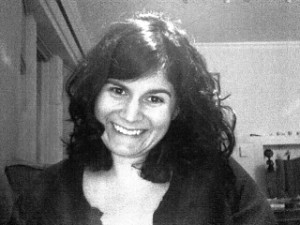Independent Childbirth Education: Sharing Lamaze's Message
By: Ami Burns, LCCE, FACCE | 0 Comments
[Editor's Note: This is our second installment of guest posts from Lamaze International's 2009 Annual Conference speakers. You can read all of our conference previews by clicking on the Lamaze 2009 Annual Conference tag. We hope to see you October 1-4 in Orlando at the Lamaze International 2009 Annual Conference. - AMR]
In a decade of being a childbirth educator, I have had the opportunity to teach hundreds of expectant families in various settings: a community health center, hospitals, maternity retail/class centers affiliated with hospitals, a spa, living rooms, and the occasional kitchen. I love teaching Lamaze, and for the last 5 years have only taught independent classes.
There are two things I've learned over the years:
- The research supports The Six Lamaze Healthy Birth Practices
- Most women are not experiencing these practices.
I know that the challenge is not that we don't have evidence to support what we teach. The challenge is that for some reason, evidence-based maternity care is too often not the standard of care.

Ami Burns, LCCE, CD(DONA)
Women who do experience all of the Healthy Birth Practices almost always have achieved this by carefully and fully informing themselves about their options, and childbirth classes remain one of the most important sources of trustworthy information. As an independent educator, I'm able to present evidence-based information without any restraint. When I taught for hospitals, I never had anyone tell me not to teach certain subjects, but know other LCCEs who are in the challenging position of wanting to teach according to the evidence but being unable to because evidence-based maternity care is not being practiced by the institution responsible for signing their paychecks.
Independent educators focus not only on the Healthy Birth Practices and Lamaze philosophy, but also on communication skills. This may sound obvious, but I'm still surprised by the number of people who have no idea they have choices or don't need permission to say 'yes' or 'no' to an intervention. I don't make decisions for my students, but give them the evidence-based information needed so they (hopefully) gain the confidence to make them and feel informed and positive about them. We can't control mothers' choices or outcomes for their babies. But what wecan do is teach according to the evidence and make sure they are learning what they need to know for a safe, healthy and satisfying birth.
Here is one example of a benefit of independent Lamaze education: I recently taught a class to a couple expecting their first baby. The mother expressed her wish to have an epidural but use natural comfort measures and coping techniques for as long as possible before getting it administered. She told me her doctor said she'd probably break her water and start pitocin when she's admitted to labor and delivery. This contradicts what the mother had read, what she wanted, and we all know contradicts the evidence that states it's best for labor to progress on it's own unless there is a medical reason to induce or augment. I had the time to address these issues and give her some tips for how to communicate her wishes with her doctor and also hospital staff once she's in labor. The mother shared her birth story with me, and while she felt at times that her 'doctor wasn't too happy' with her, she labored and birthed her way. This is just one example of how Lamaze is - not just about the breathing! Teaching based on the research gives mothers the tools to make informed decisions and build confidence in their ability to birth their babies on their terms.
I had wonderful experiences when I taught for hospitals. But I know not every hospital-based educator can say the same. I recall a few articles and letters in The Journal of Perinatal Education that have addressed this all-too-common challenge LCCEs face. Some hospital-based educators have advocated effectively using evidence to obtain greater autonomy in teaching. Hospital-based educators can also collaborate with independent childbirth educators, offering courses that compliment, rather than compete with, one another. Many of my students attend their hospital's one-day childbirth class then attend my classes to focus more on natural birth.
On October 3rd, I'll be presenting Inspiration for Independent Educators at Lamaze International's Annual Conference in Orlando. I encourage LCCEs and educators-in-training to attend. You don't even have to be an independent educator! Hospital-based LCCEs are more than welcome, and I know we can learn a lot from each other. I believe there are 'pros' and 'cons' to both types of education, and will talk more about this during my presentation.
Whether we teach in or out of hospitals, our mission should be the same: support normal birth and provide evidence-based information to help women gain confidence and make informed decisions about their care.
Ami Burns is the founder of Birth Talk (www.birthtalk.com). She is a Lamaze Certified Chidlbirth Educator, DONA International Certified Doula, and will be inducted as a Fellow in the American College of Childbirth Educators at the Lamaze International Annual Conference in October. Ami's formal degree is a B.S. in Mass Communication from Emerson College, and she combines her background in media with her passion for birth as a freelance writer and award-winning birth video producer.

Published: August 11, 2009
Tags
Childbirth educationHealthy Birth PracticeHospitalsMaternal Infant CareHelp and TrainingLamaze 2009 Annual ConferenceAmi Burns